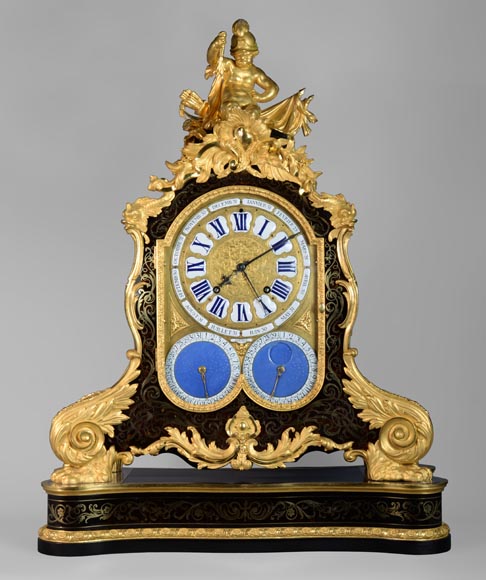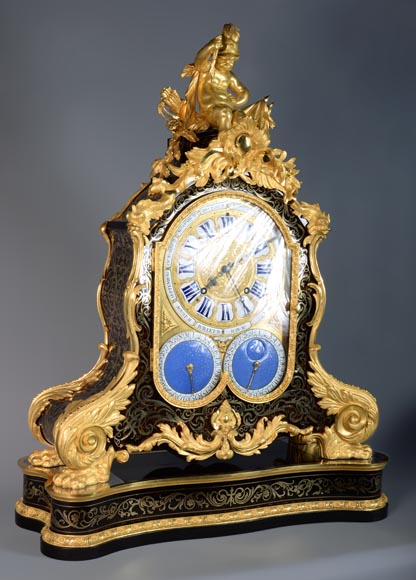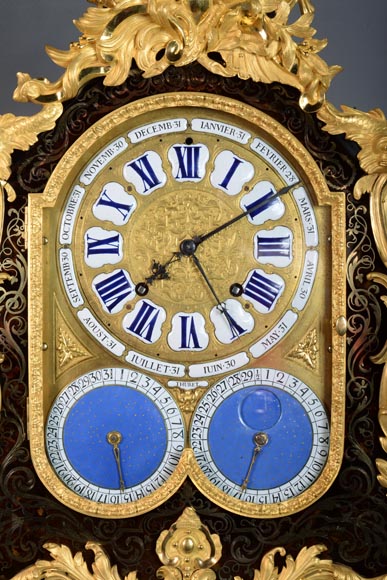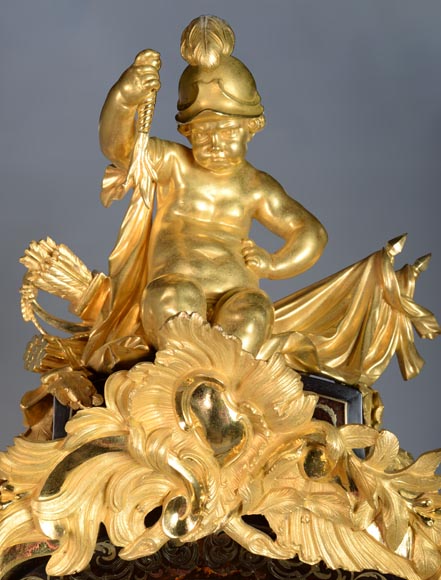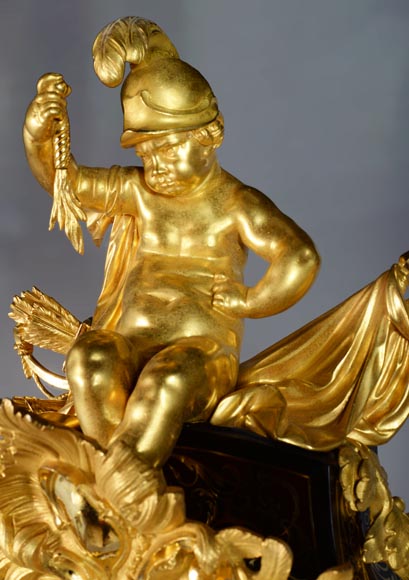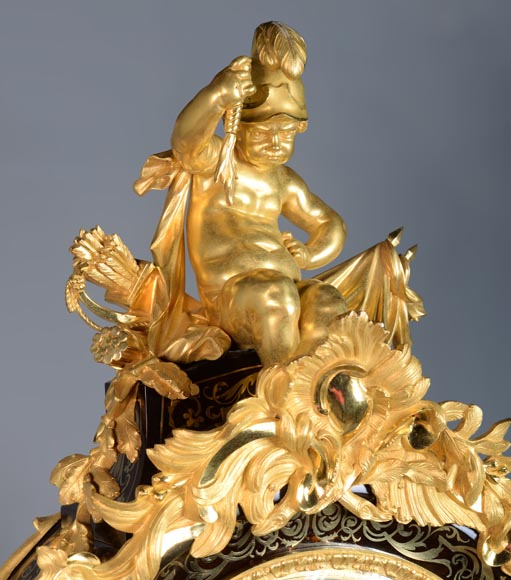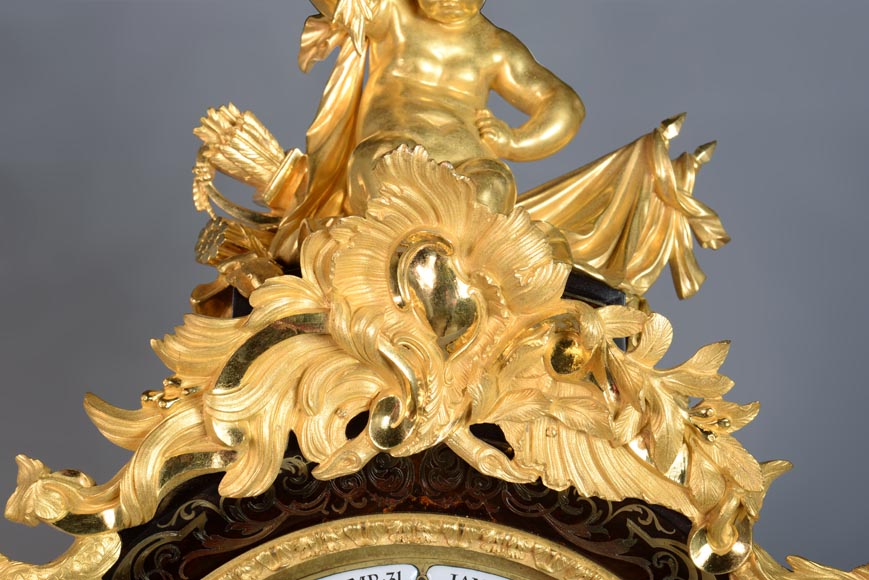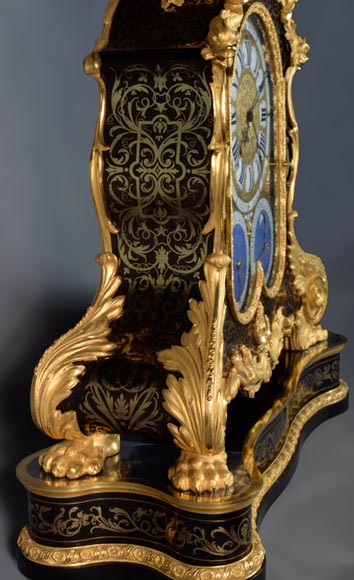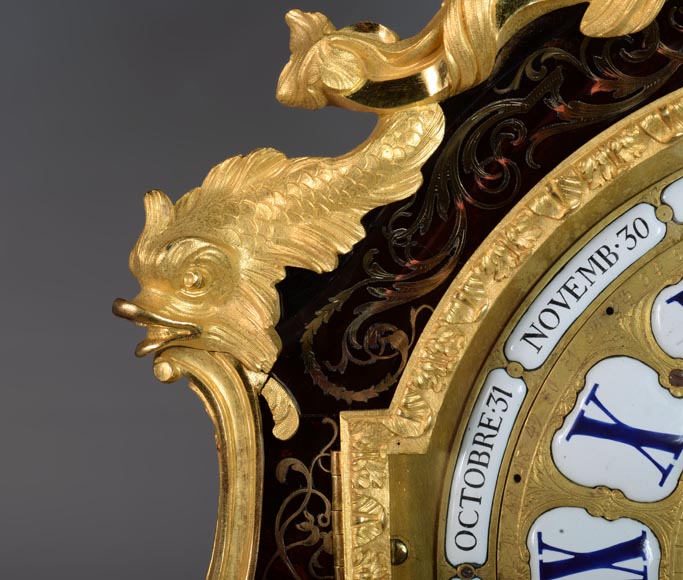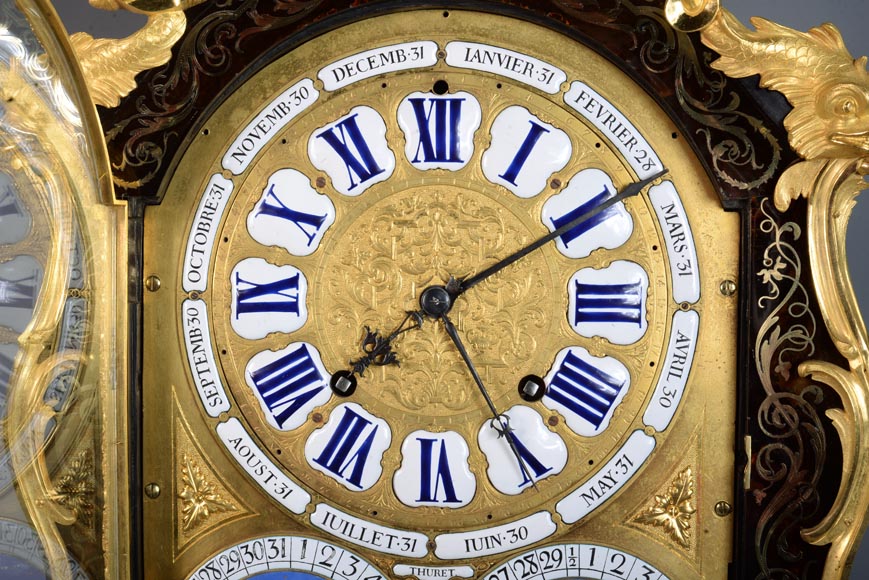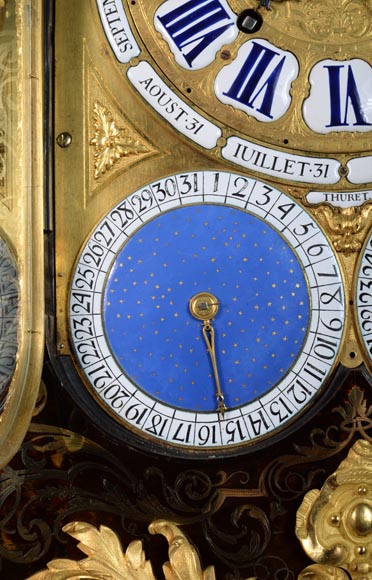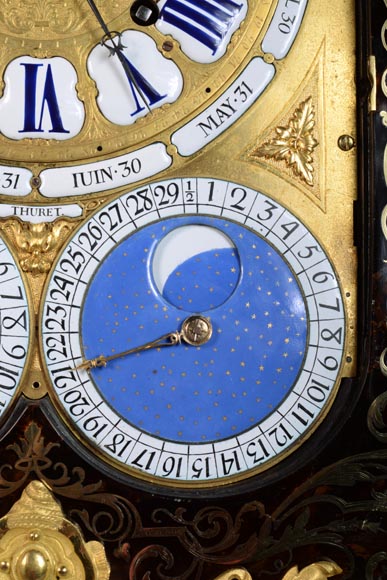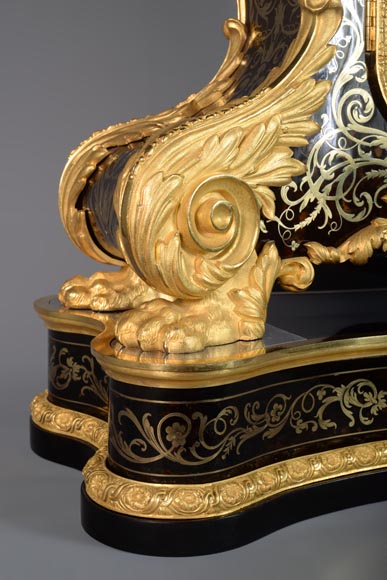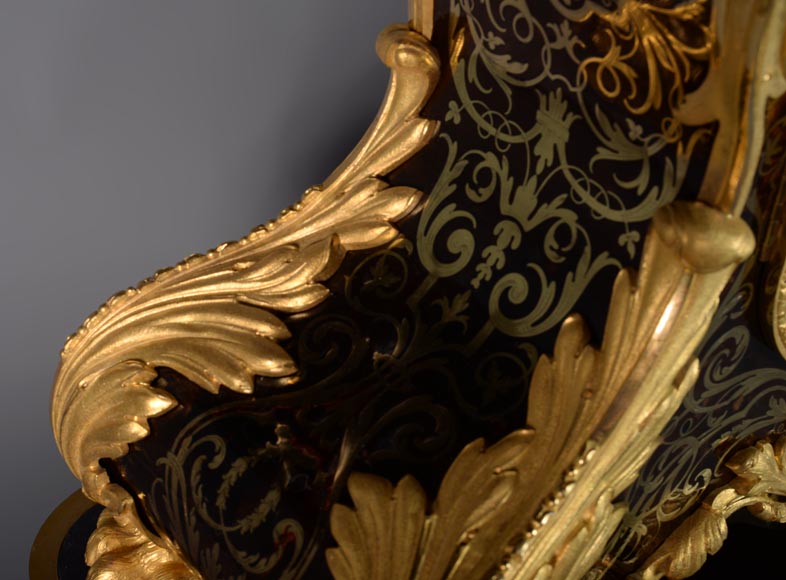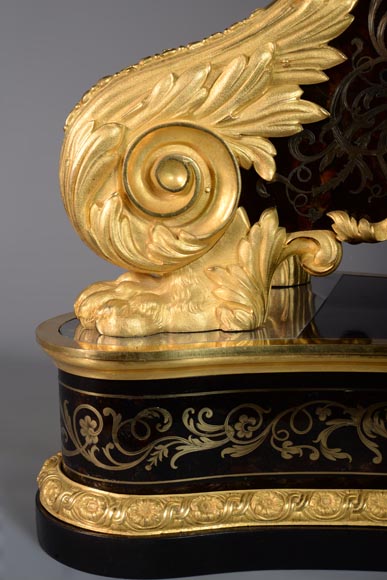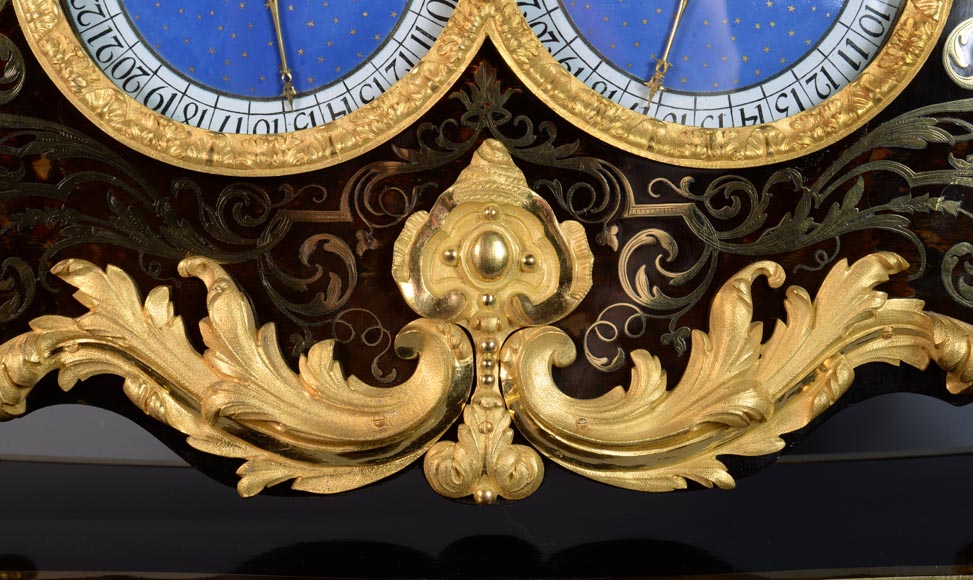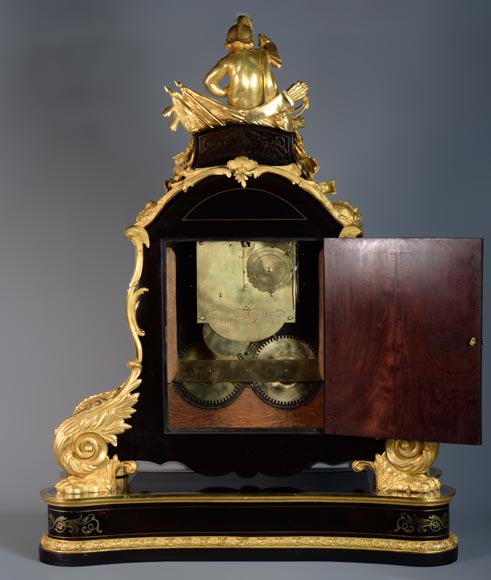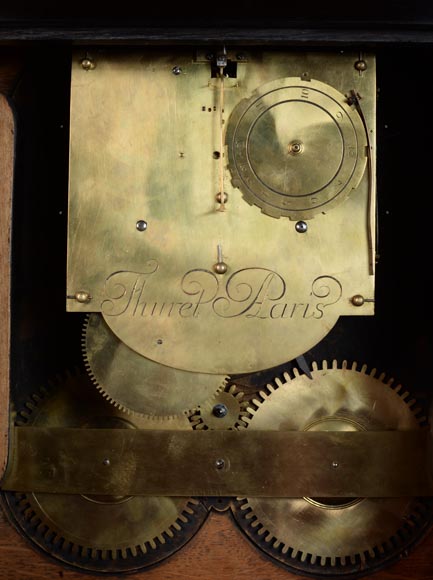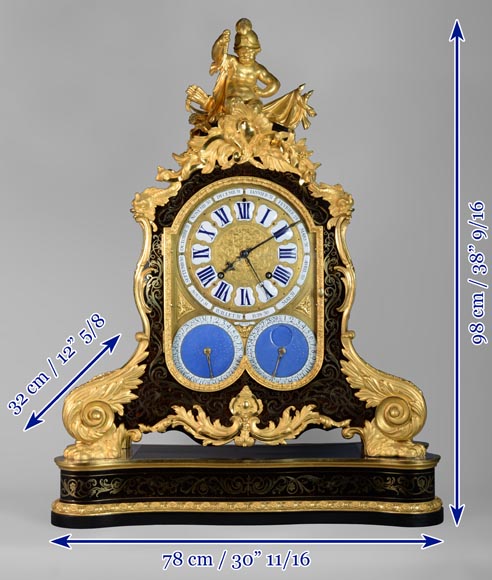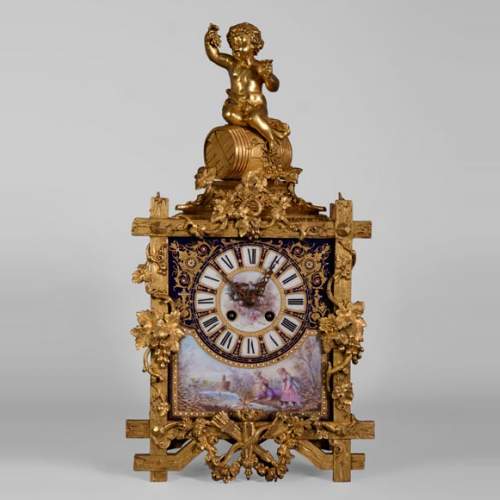Style Louis XIV / Ref.13150
Jacques THURET (1669-1738) - Astronomical clock in a Boulle marquetry box attributed to Alfred-Emmanuel BEURDELEY (1847-1919) - Old collection of the duke of Mouchy
Dimensions
Width 29'' ⅛ 74cm
Height 39'' ⅜ 100cm
Depth: 10'' ¼ 26cm
Origin:
France, 19th century
Status:
Good condition
This exceptional decorative clock gathers the mastery of two important French artistic houses. Indeed, it shows a remarkable bronze work and a decoration imitating the Boulle marquetry, that we can attribute to the major Parisian furniture maker from the second half of the 19th century, Alfred-Emmanuel Beurdeley (1847-1919). This decorative clock is used as frame for a mechanism from the late 17th century, signed on the back and under the main dial with the name of Louis XIV’s clock maker, Thuret.
Coming from the duke of Mouchy’s collection, we can suppose that the mechanism was at the beginning set in a Boulle piece, which would have suffered from deterioration. Thus, its illustrious owner would have asked one of the most important names of furniture makers and a specialist in Antique furniture imitation, to recreate for his mechanism a luster worthy of the one it had at the beginning.
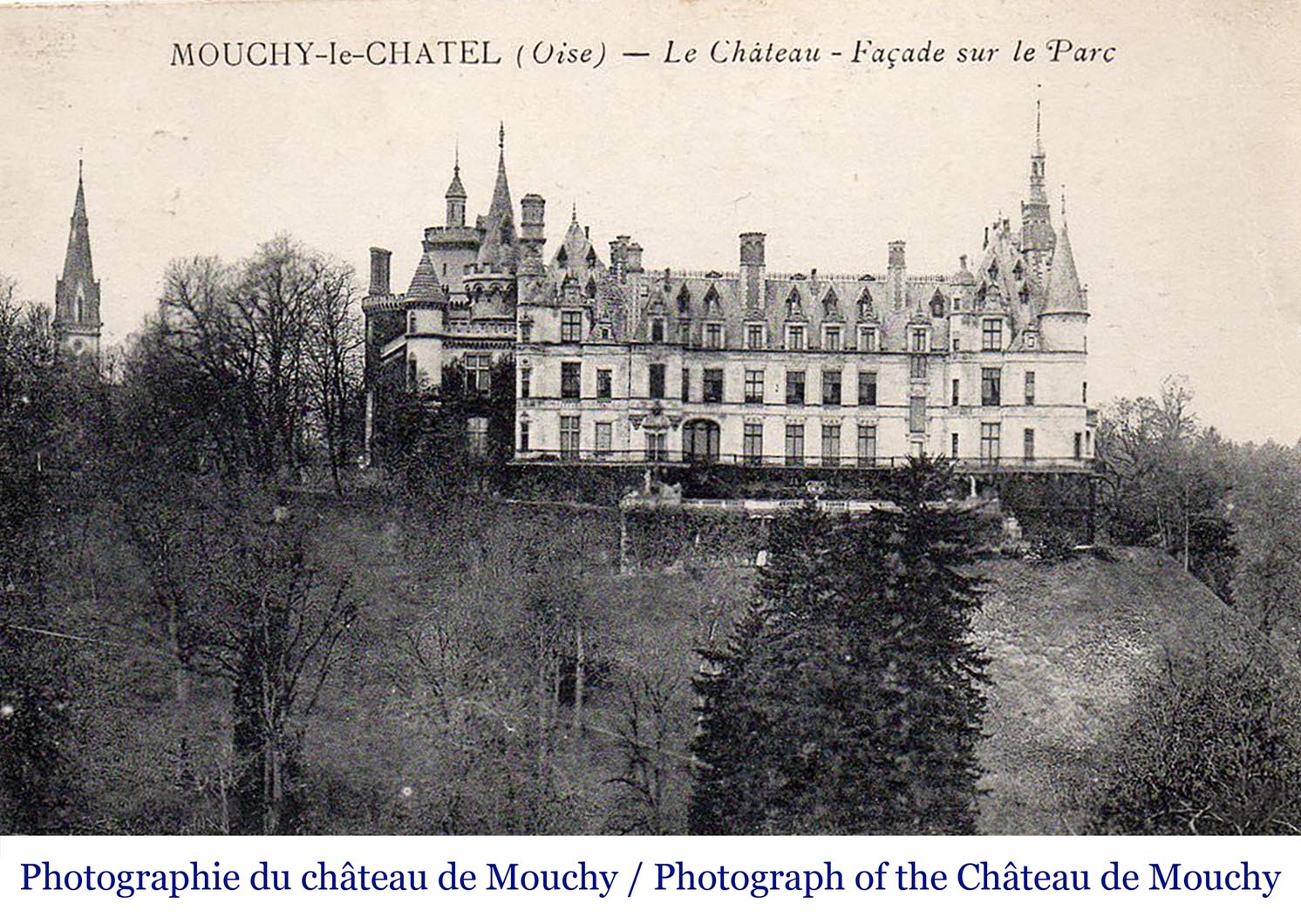
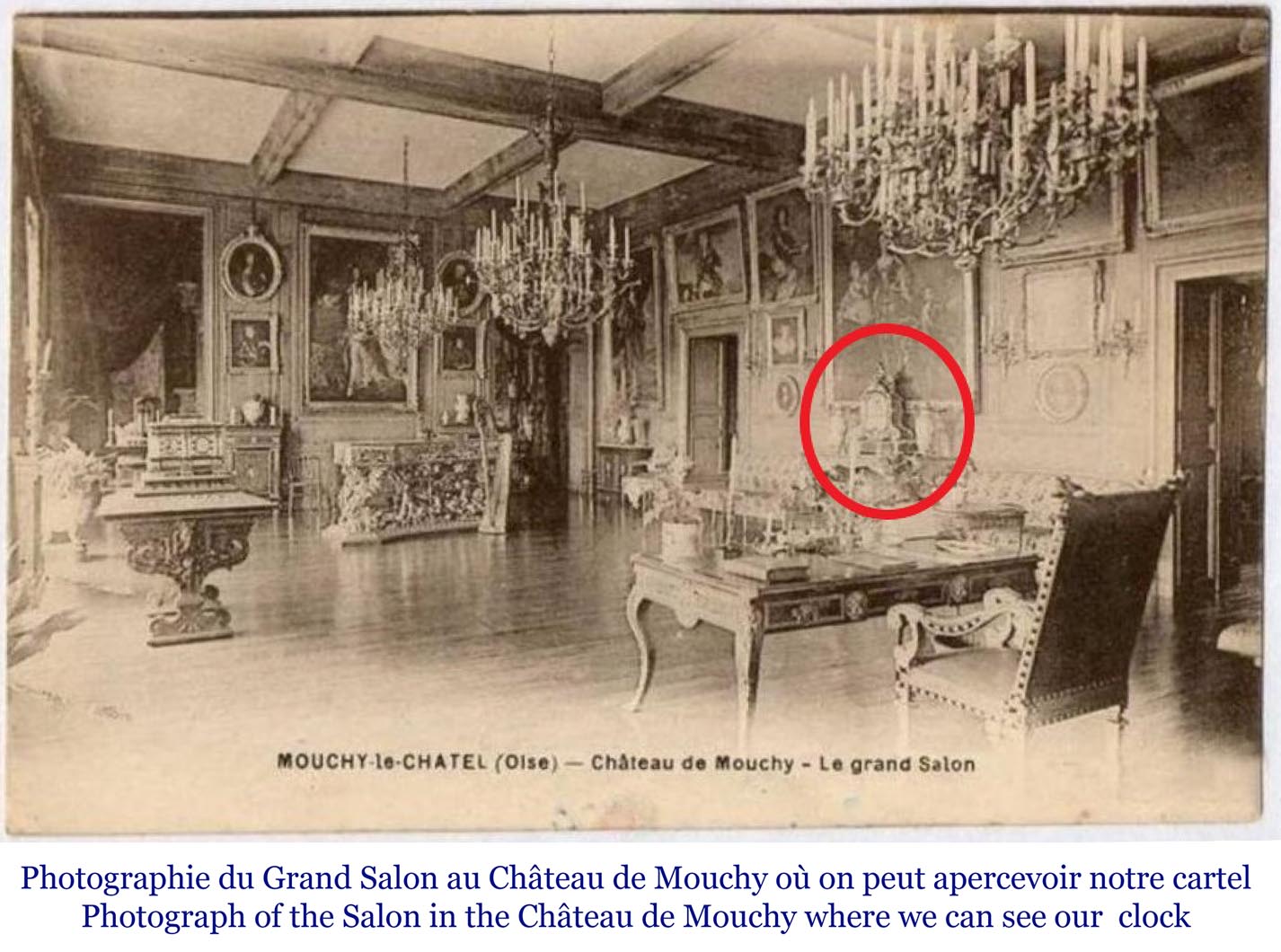
The mechanism of our astronomical clock shows three dials. The main dial, the biggest, indicates hours written on enamelled cartouches. Around the dial are listed months, followed by the number of days within the months as for example “June.30” or “August.31”. Two smaller dials underneath the main one indicates the month's days and the lunar cycle, both on a dark blue enamelled background adorned with tiny golden stars.
This impressive mechanism is the result of a real expertise, and is framed with a sumptuous Louis XIV-style decoration. The brass arabesque motifs imitate the Boulle marquetry of the end of the 17th century, and contrasts with a rich chiselled bronze and an extraordinary gilding. The four animal feet on which the decorative clock is resting rise in the form of scrolled acanthus leaves, until the crowning where Mars as a child is sitting in triumph, armed, looking determined. He is wearing a helmet, and surrounded by flags, with his quiver filled with arrows, in front of a jungle of acanthus leaves, trickling along the dolphins in the corners. The decoration clock is set on a polylobed base with the same marquetry ornamentation underlined by a gilded bronze frieze.
The Beurdeley family is one of the most important dynasties of furniture makers, and extends itself through three generations. Alfred Emmanuel Louis Beurdeley (1847-1919) was Louis-Auguste-Alfred’s son (1808-1882), as well as his collaborator and then his successor starting 1875. He kept the store, the famous Pavillon de Hanovre, on the corner between the rue Louis-le-Grand and the boulevard des Italiens, and had his workshops at the 20 and 24 of rue Dautancourt. He specialized himself in luxury furniture making, imitating ancient models from the Mobilier National, and created some original pieces.
He entered the 1878 World’s Fair where he was awarded a gold medal, and, according the record, « he kept on going the high reputation of the house founded by his father. He knew how to give it a new bright with his spirit of initiative, his enlightened taste... ». He was then made Chevalier de la Légion d’honneur thanks to his participation during the 1883 World’s Fair in Amsterdam.
He kept on working until about 1895, then ended with his firm and sold his collections, consisting in more than 2000 pieces.
Jacques Thuret (1669-1738), following the footsteps of his illustrious father Isaac Thuret (c. 1630-1706), and became one of the best clock makers active during Louis XIV’s reign and the Regency. He inherited the post of Clock maker of the king in 1694, previously attributed to his father, and was also allowed to stay in the Galeries of the Louvre simultaneously with Boulle with whom he collaborated, but also with Gilles-Marie Oppenordt, the great designer. The works they realized together are nowadays considered like true masterpieces and kept in museums such as the Wallace Collection of London or the Musée des Arts et Métiers of Paris.
By the way, it is under the impetus of André-Charles Boulle’s genius that the inlaid decoration with copper threads upon a background of turtle scales progressively appeared on decoration clocks starting the 1690 decade, giving to this object a great preciosity that only great dignitaries could afford.
Alfred-Emmanuel Beurdeley, an adept of Ancien Régime furniture reproductions, aware of the collaboration between the two great artists of the 17th century, created then, around the mechanism, a decoration thought like a tribute to the great Louis XIV style, where he could spread all his mastery.
Informations
Price: on request
Recommended for you :
Dimensions:
Width: 25
Height: 46
Depth: 16
Dimensions:
Width: 35
Height: 42
Depth: 169
Dimensions:
Width: 44
Height: 48
Depth: 18
Dimensions:
Width: 32
Height: 39
Depth: 21
Dimensions:
Width: 18
Height: 33
Depth: 15
Dimensions:
Width: 31
Height: 35
Depth: 19
Dimensions:
Width: 47
Height: 76
Depth: 23
Dimensions:
Width: 30
Height: 38
Depth: 15
Dimensions:
Width: 27
Height: 44
Dimensions:
Width: 38
Height: 69
Depth: 11
Dimensions:
Width: 33
Height: 46
Depth: 17
Dimensions:
Width: 41
Height: 70
Depth: 18



